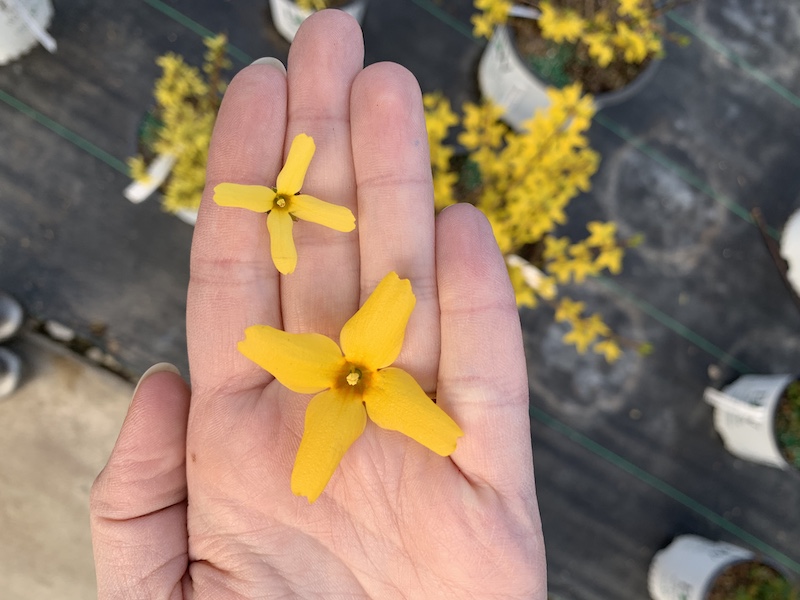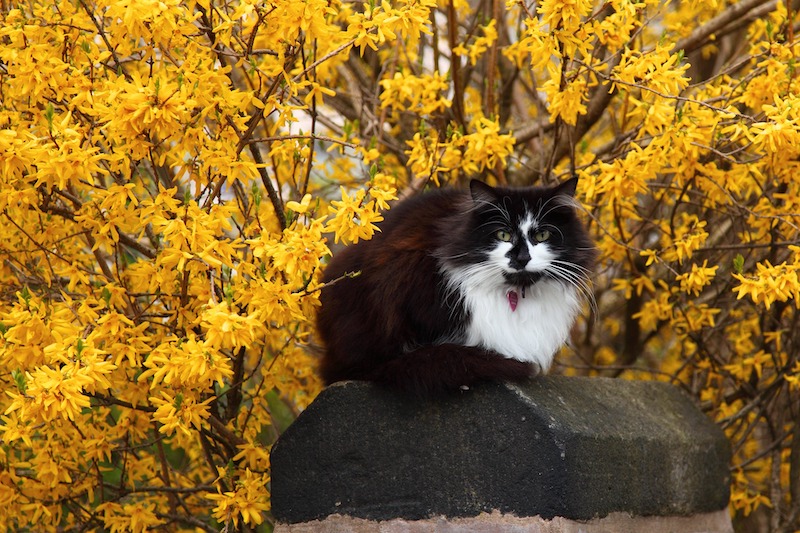Forsythias add vibrant color to a spring landscape and are a gardener favorite thanks to their low maintenance and lovely flowers. Forsythia bushes are non-poisonous, making them an even better addition to the outdoor spaces of homes with little ones and pets. Forsythias's flowers, leaves, and branches are non-toxic, so it is a safe plant to have around curious kids, dogs, and cats. The flowers of Forsythia have a bitter taste, which may even discourage children and pets from eating the plant.

Are Forsythias Poisonous to Children?
Forsythia shrubs are safe to have around children of all ages. While the bold yellow flowers attract the attention of curious kids, the plant is non-toxic. The flowers taste bitter, so if a little one were to eat the plant, it would not be harmful, and it may discourage future efforts to taste the plant. The plant is still safe but less attention-grabbing after the flowers fade and the foliage fills in.

Are Forsythias Poisonous to Dogs?
Forsythias are a dog-friendly plant that is safe and non-toxic to canines. The plant has a bitter taste, so most dogs and puppies avoid eating it, but if they do, rest assured your pet will be okay. Overeating may lead to an upset stomach, so keep an eye on active dogs, but Forsythias are not poisonous if consumed.
Are Forsythias Poisonous to Cats?
The upright, woody branches of Forsythias are not likely to interest cats, but no worries if your feline is interested in this plant because it is not poisonous. Forsythia blooms taste bitter, which discourages most animals from eating the plant. Forsythia bushes are a safe addition to a yard if you have outdoor cats.

Are Forsythias Poisonous to Other Animals?
Forsythias are not known to be poisonous to any animals, including livestock. Most animals ignore this flowering shrub because of its bitter taste. This is an excellent perennial shrub to include in your outdoor space if you have had previous issues with foraging animals.
Symptoms Of Forsythia Poisoning
Forsythias are not poisonous. Most animals will avoid or ignore this plant due to its unpleasant taste. The only potential problem if your pet eats Forsythia is an upset stomach caused by overeating. Always check with your doctor or veterinarian for guidance if you suspect Forsythia poisoning.
Here are some common symptoms to look out for in plant overeating:
- Upset stomach
- Bitter taste
Preventing Forsythia Poisoning
Since Forsythias are not poisonous, it isn’t necessary to take steps to separate them from children or animals. This plant is a good choice for gardeners who have previously had problems with animals eating plants. In the rare event your Forsythia bush is damaged by an animal, a scent-based deterrent or fence will keep animals away.
Pet Poison Helpline
If something were to happen to your furry friend, and you suspect that they are suffering from Forsythia poisoning, there is a poison control hotline to call for 24/7 vet advice. It is called the Pet Poison Hotline, and their phone number is (855) 764-7661.
Sources: "Golden Bells." American Society for the Prevention of Cruelty to Animals. aspca.org
 |
Author Alison Cotsonas - Published 09-01-2022 |
